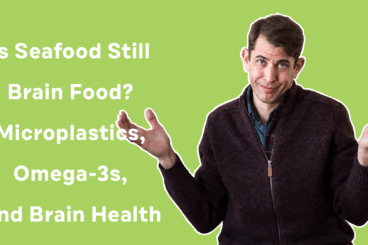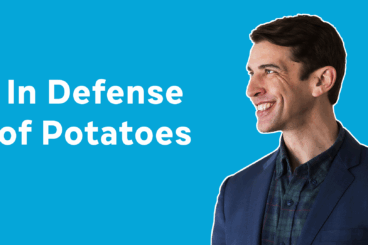Enter tofu.
Soy, like wheat, meat and dairy, is a food that stirs strong opinions. My parents were part of the “Back to the Land” movement of the late 1970s and tofu was a requisite of this lifestyle. For a time, they even made their own.
Healthy eaters like the idea behind tofu, a near-complete protein from a plant, that’s easy on the planet, and hails from an ancient culture known for longevity. Soybeans, like any legume, are packed with nutrients. For vegetarians and vegans, tofu often replaces meat and seafood as a protein source.
For 12 years, I was a vegetarian and ate tofu every week, but today the closest I get is edamame — because unlike questionable processed foods, I trust beans.
So what’s the brain science on tofu?
As part of the Honolulu Heart Program, researchers interviewed almost 4,000 people in their 40s and 50s starting back in 1965 and then again in 1971 (about the time my parents were mastering their home tofu press).
They tracked them 30 years later when the participants were between 71 and 93 years old, and gave them a battery of cognitive tests like remembering sequences of numbers, solving puzzles, and playing word games.
By then, brain imaging techniques had advanced and the researchers took full advantage of this. They scanned the brains of 574 participants, using magnetic resonance imaging (MRI), which gives us a very accurate measure of brain volumes. To be completely thorough, they also completed autopsies on 290 of the men, which revealed the overall weight of the brains.
The researchers ranked participants based on their self-reported tofu intake. Those who reported eating at least two servings per week of tofu had smaller brains and did worse on the cognitive tests.
The study looked at men because the researchers had piggybacked this onto a study of heart disease, but they even tested the wives’ cognitive function, suspecting that both husband and wife sat down to their tofu meals together. They found that these women also did worse on cognitive tests. So even being married to a tofu eater means more cognitive decline.
Why did the tofu-eaters’ brains shrink faster? The study is a correlational study, so the cause of the brain shrinkage can’t be determined. The researchers noted that tofu is a staple of Japanese diets, generally associated with health and longevity. But let’s take a smart guess. A traditional Japanese diet includes tofu but also fish — traditional fisherman often ate about half a pound per day.
There are two nutrients most closely tied to the rate at which your brain shrinks: vitamin B12 and DHA. Over time everyone’s brain shrinks, a process called brain atrophy, but it shrinks faster in people with lower levels of B12 and DHA. The foods with the most B12 and DHA are all seafood: fish, oysters and other bivalves, and shellfish. While bloods levels of B12 and DHA weren’t reported, seafood consumption was associated with better cognitive performance.
So does eating tofu shrink the brain?
The mistake we too often make is jumping to causation with correlational studies. But there has been a growing and clear signal in the scientific literature that what we eat is a large controllable factor in our brain’s health as it ages.
Generally eaters who avoid meat and animal products have lower levels of B12 and DHA than omnivores. A recent large study found large numbers of vegans didn’t have enough B12: 52% were frankly deficient and 73% were described as “insufficient.”
One study is just that, and if you love tofu, I’d say keep enjoying it. But I’d recommend you make sure your B12 level is solid and find a food-based source of DHA you like.




Thank you fo posting interesting information about tofu. It’s really helpful article.
Love tofu…. eat it several times a week, but will now supplement